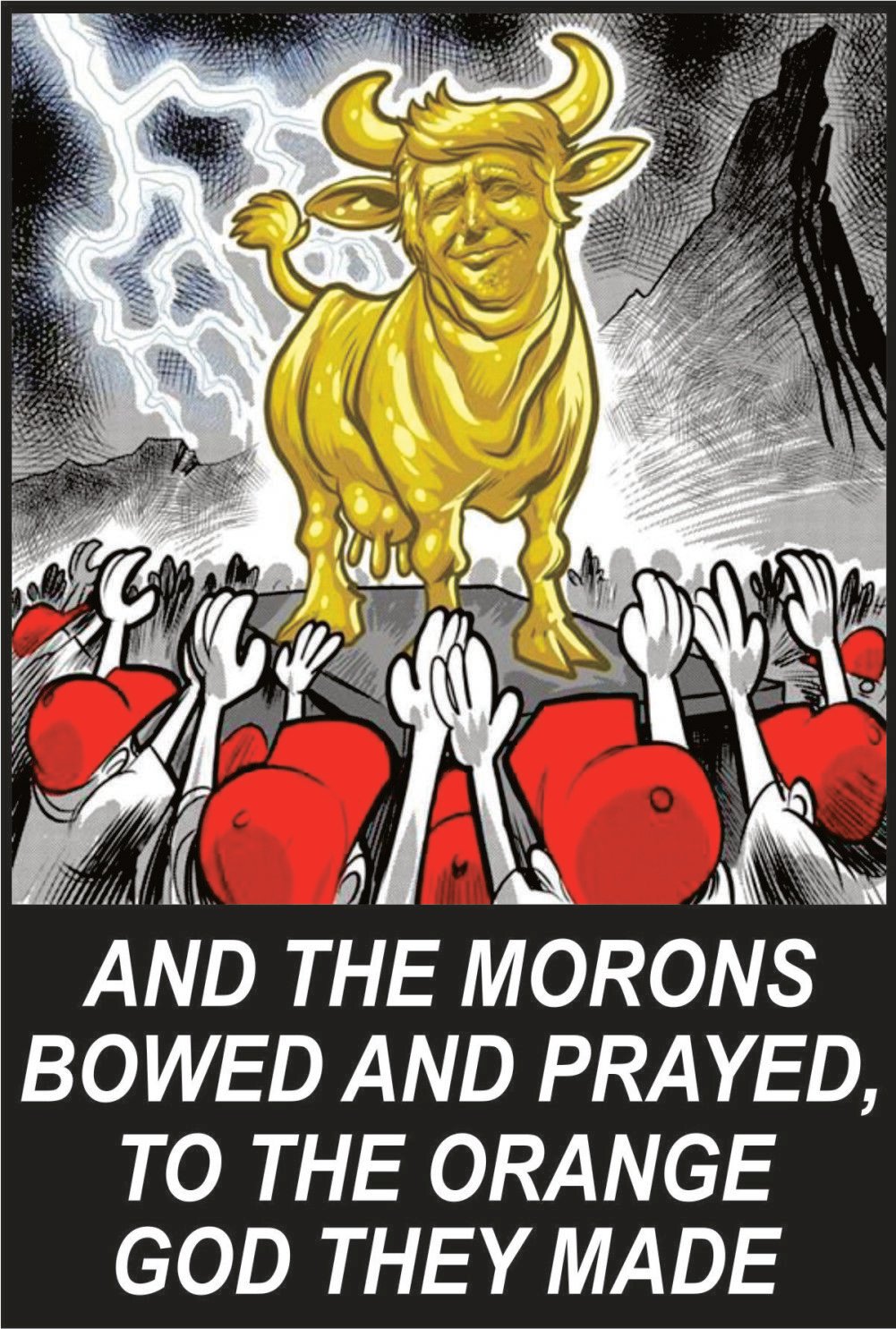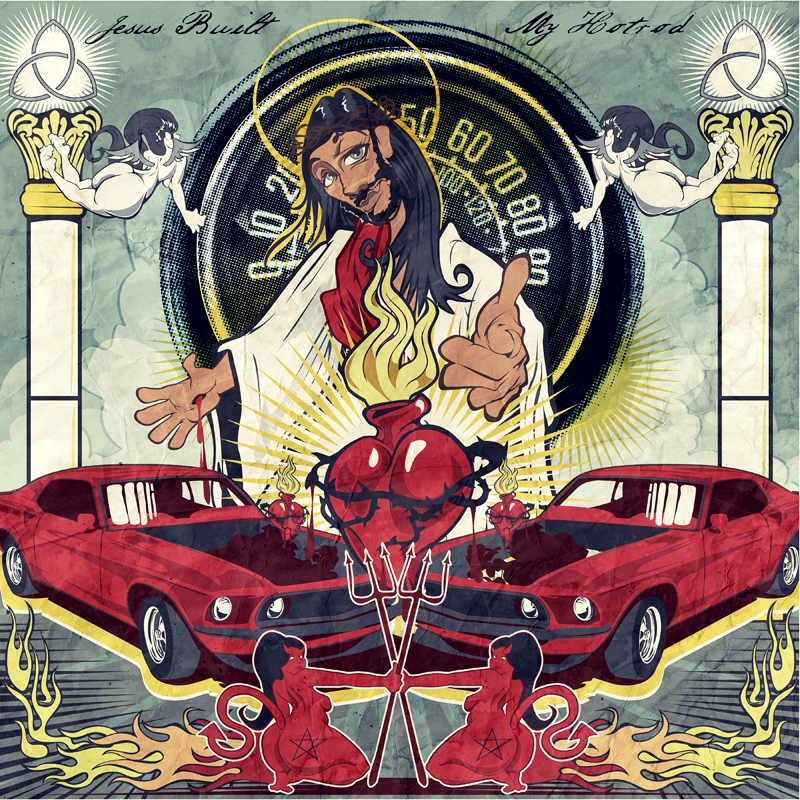I read an essay by a christian a while ago that pointed out that the separation of church and state wasn’t about protecting the state from religion - it was about protecting religion from the state.
The gist of the argument was that religion should be concentrating on the eternal, and politics, by necessity, concentrates on the immediate. The author was concerned that welding religion and politics together would make religion itself political, meaning it would have to conform to the secular moment rather than looking to saving souls or whatever.
The mind meld of evangelical christianity and right wing politics happened in the mid to late 70s when the US was trying to racially integrate christian universities, which had been severely limiting or excluding black students. Since then, republicans and christians have been in bed together. The southern baptist convention, in fact, originally endorsed the Roe decision because it helped the cause of women. It was only after they decided to go all in on social conservatism that it became a sin.
Christians today are growing concerned about a falloff in attendance and membership. This article concentrates on how conservatism has become a call for people to publicly identify as evangelical while not actually being religious, because it’s an our team thing.
Evangelicals made an ironically Faustian bargain and are starting to realize it.

It’s not like they ever followed his teachings anyway…
Jesus spent a lot of time bragging about the punishment he was going to dish out to insufficiently subservient people. They certainly nail that aspect of being Christ-like.
Worth noting also WHY racially integrating universities was such a big deal to Southern Baptists.
The sect was founded as a splinter group from the Triennial Convention in 1845 because the group that would become the Southern Baptist Church opposed the abolition of slavery. The largest sect of protestant Christianity in the US is literally founded upon the idea that chattel slavery was a right and just thing. And they are doomsday cultists.
19th-century American Christians were even able used the Bible to justify slavery: https://en.wikipedia.org/wiki/Curse_of_Ham?wprov=sfti1
To be fair, the Bible is vocally pro-slavery, that’s a pretty easy lift.
It’s a sad irony that christians are rejecting one of the few tolerable parts of christianity (namely, the teachings of compassion, brotherly love, and peace promoted by jesus).
It’s as if they aren’t capable of the basic logic needed to comprehend where the word “christianity” comes from.
The community nature that religious communities create also means to disagree with them is to be removed from the community. Politics is so intertwined in religion now that the religion isn’t a religion anymore.
They love the supply side Jesus who says fuck the poor.
I’ve been trying to tell people Jesus would be socialist for years but no one listened
Fuck these hypocritical motherfuckers. This is why I work on cars now and not people.
I was a Christian for 20 years. The problem with this argument is that it’s ignorant of what the Bible actually says. Sure, Jesus was less of a dick than his dad but there’s still plenty of instances where Jesus was also a dick. Even on his death bed (cross?) he condemned 2 people next to him to hell for being mean to him! And he spent a lot of his time on earth not being very friendly to any other religion or any other interpretation of his own religion.
And the other issue is that the Bible is INTENTIONALLY vague so that the people who wrote it to have power over others can make their followers do whatever they please at that moment. Some denominations believe the old testament is completely moot now, while others think only certain things still apply, while some think only the dietary restrictions were overrode by Jesus. ALL of those are biblically supported because the Bible is vague as fuck.
The problem with this argument is that it assumes there is only one correct interpretation of the Bible, and anyone who disagrees is intentionally ignoring parts or hasn’t actually read it. That’s not how any of this works. The Bible is intentionally vague, full of contradictions, and has a lot of fucked up shit people who haven’t read it fully don’t know about. There has been a huge push of “the Bible actually says you should be super nice to everyone” when that’s not true at all.
There’s a reason people who read the Bible on their own end up giving up Christianity, and it isn’t because it’s about how Jesus was a chill dude that loved everyone.
You don’t actually remember the bible that well if you can’t remember Jesus telling the guy next to him that he would be with him in Paradise (Luke 23:43).
I think it helps with clarity in conversations to recognize explicitly that we’re not talking about Jesus-a-person-who-existed-and-did-things, but rather a Jesus-concept. Whether or not there was a historical Jesus (for whatever that means), what we normally discuss is the mythological Jesus. Some might believe that the mythological Jesus is literally true, but they still rely on interpreting a series of writings to create a cohesive narrative. There are multiple narratives currently co-existing, ranging from Jesus-as-hippie to the ever popular “If Jesus had an AR-15 he wouldn’t have been crucified.”
Personally, I’m agnostic as to the existence of a historical Jesus, in no small part because it’s so poorly defined as a concept. But we can say in all of the things written about what Jesus said or did (or in the case of Paul the things Jesus never said but would have if it had occurred to him), multiple narratives and interpretations exist, and all cite the same source material to prove their point.
“You will be condemned unless you love me, no matter how much objective good you’ve done” seems like a morally dicey proposition. It’s not even repentance, per se, that triggers forgiveness. Judges in courts can take remorse into account. That’s not what this Jesus-concept is offering. Instead, it’s a “worship me as a god or die” position, outside of the framework that considers anything Jesus says as automatically good by definition.
The biblical Jesus was just as much of an asshole as the people writing about him were.
If you actually read the whole story, and not just 1 sentence, there are other people who are mocking him that he condemns. Saying he should save them because he’s the Messiah. He says that to one person who defends him. And you also have to keep in mind there are A LOT of contradictions in the story of Jesus’ death… It is mentioned across several contradictory books not only a single line or chapter in a single book. But it’s all the word of God, so their condemnation still stands even if it contradicts other accounts ;)
Which is pretty ironic cause it highlights God made the fucked up rules, and could have just saved everyone without killing his kid and making everyone suffer on earth.
Some more examples of right wing Jesus… if you bother to read more than 1 sentence
Matthew 21 - Violence because people do not worship “the right way”
Matthew 15 - racism, advocating killing kids for disobeying
Matthew 24 - cut up servants into pieces for disobeying
Matthew 8 - killing a bunch of pigs for no reason? (this is more him being a dick but still lol wtf)
John 3 - again rebuking people for different beliefs
Matthew 12 - rebuking people asking for evidence to believe him
Matthew 10 is like the #1 right wing Jesus verse IMO
-
telling disciples not to interact with other beliefs/races
-
telling them he was there to divide the earth and families not to bring peace
-
talks about abandoning all the people that believe differently
-
must abandon your family to be “worthy”
Matthew 5 / Luke 16 are what people use to justify the old testament laws still apply. Which yes includes buying humans as slaves!
People act all surprised about the Bible being used to justify slavery and segregation and it’s like… It’s right there dude it doesn’t need to be manipulated. On the contrary I remember a lot of the Bible, just not the single happy lines people repeat all the time
Which is pretty ironic cause it highlights God made the fucked up rules, and could have just saved everyone without killing his kid and making everyone suffer on earth.
Or, just here me out here, not put the idiotic comfort-pets in the same garden as trees you don’t want them eating. Take golden retriever puppy, lay out a ton of treats and tell them they can have all but 2.
It doesn’t take a genius to see what’s going to happen. Supposedly sky-daddy knows everything. In short, he did it on purpose so he can LARP as a savior.
-
When cultural appropriation goes wrong…
Christianity as preached by Jesus is the LEAST warlike Abrahamic religion. If you want wars, agression, revenge, authoritanism, choose Judaisim or Islam. Christianity is the hippy dippy pacifist religion.
So… in the US? Not so much.
But it started quite a while ago, and was first talked about by Saint Augustine (edit: looked it up was wrong.) in late Rome, explicitly because people were starting to question god’s power after rome got sacked by the visigoths.
The argument then was basically “kingdom of god is separate, deal with your own shit” but more specifically, that the physical world needed to function so their sky daddy kingdom can… wank off?
Then in the 18’s, it was a reaction to monarchs using Divine Right (to rule) to start appropriation of their authority/influence (by saying they were the head of the church. See Anglican vs Catholic.)
By the time the US got around to adding it to the constitution… it was added because the US colonies were a LOT of puritans. Who… got the shit persecuted out of them until they left. Ironically, because they were imposing their extremely rigid morality laws on everyone around them and their neighbors wanted them.
The puritans wanted the law because they were being told they can’t be assholes.
…Is that not the Aunty Donna guy? What’s he doing in a clipart?
I thought it was Jonathan Van Ness tbh
That sounds more like a modern reinterpretation of “protecting religion from the state.” The context of the origin of the separation of church and state from the late 18th century was more about religious adherence being closely tied to political power, so you could deal your political opponents harm by branding them a participant of a socially outcast religion, or you could use political power to (legally) persecute the followers of a non-state religion. Yes, it was about protecting religion from the state, but it was in more concrete terms of protecting the followers of non-state-backed religions, rather than preventing some kind of philosophical corruption of the moral foundations of the religion.
I agree. I think the main thing that kept separation of church and state historically was the fear on everyone’s part that someone else’s religion might end up in charge. I’ve been friends with former adventists and they told me one of their ent times myths is that they’ll be persecuted and locked in concentration camps by Sunday church-goers. They also had a tendency towards pacifism and vegetarianism. That’s been changing in the past decade or two, where they (like many Catholics) have started just signing off on the evangelical worldview.
I feel like, once they’re in a position of having consolidated political power, we’re going to see an increase in christian sectarianism, but until that point they’re going to pretend they’re a big tent movement.











